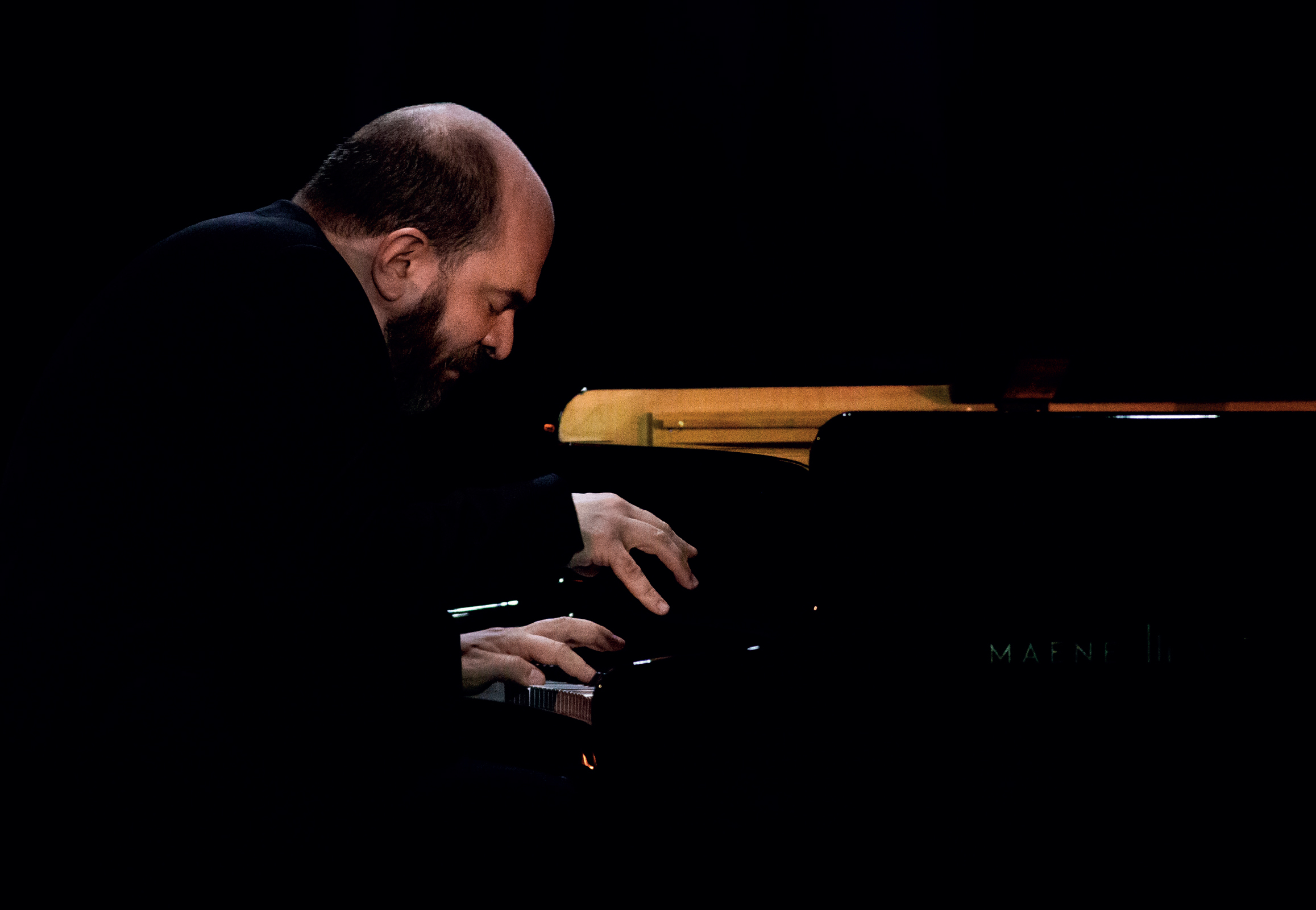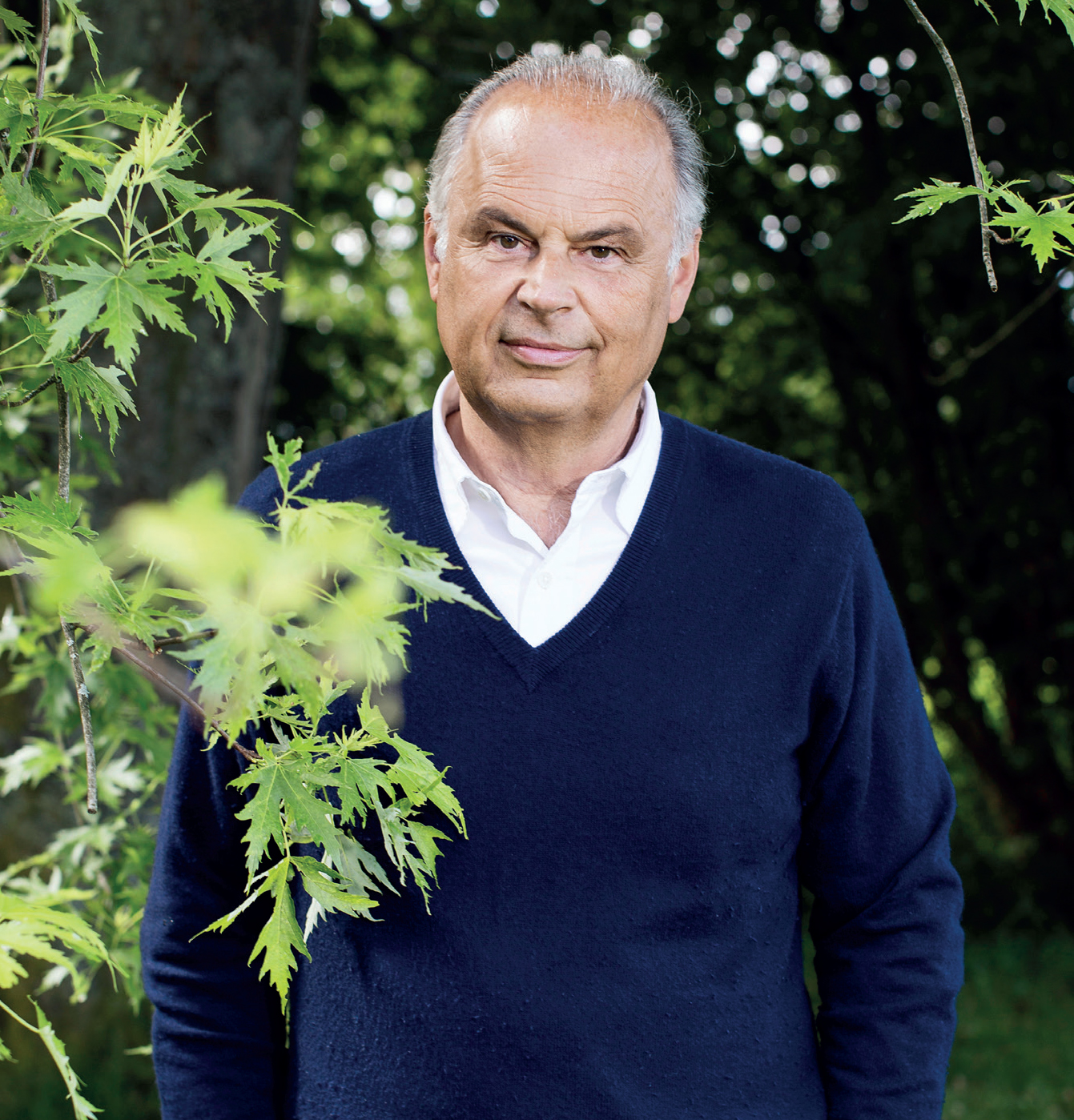Festival Focus: Verbier Festival
Michael Church
Sunday, October 2, 2022
The Verbier Festival has stood the test of time, attracting a nucleus of loyal stars to an event that is something of a pilgrimage. Michael Church reports

Launched back in 1994, the Verbier Festival is proving a very durable fixture. It has come through the pandemic relatively unscathed, even if this year’s event was marred by Covid-induced cancellations. And the war in Ukraine has impinged on only one respect. The Russian conductor Valery Gergiev, long one of the festival’s leading deities, had to be fired on the first day of the Russian invasion, because his shameless support for his bank-roller Putin over many years has made him a pariah in the world of classical music. His presence on the rostrum – once guaranteed to sell tickets – would now have been guaranteed to empty the auditorium, with pickets barring the doors.
The festival owes its durability to the tenacity of its begetter Martin Engstroem, who has recently created two offshoot festivals, one in Riga and the other in the Georgian village of Tsinandali. But Verbier remains his prime focus, and he has managed to keep its little nucleus of stars fiercely loyal, notably Martha Argerich, Evgeny Kissin and Yuja Wang. The normal festival pattern is for global stars to jet in one day and out the next, with security guards keeping the public from any contact with performers. Engstroem insists on the reverse, with players and listeners mingling in an informal commune.
‘I’m always looking for another name for the festival, because that word is so misused,’ he says. ‘I’d like to find a word which implies a happening, an atmosphere. Something that implies the pilgrimage you have to make to get here, because it’s not a through-town. It’s at the end of the road, and it takes a big effort to get here. But once you arrive, you really are in a different world.’ And that’s exactly how everyone feels, there on the top of the mountain.
First up among the pianists during my stay was Stephen Kovacevich, one of the most loyal of the old stagers. Now 82, he may no longer possess his erstwhile bite and precision, but the poetry in his playing is undimmed, as we saw in his delivery of Berg’s Op 1 Piano Sonata and Beethoven’s Op 110, which gracefully unfolded as one single continuous line of eloquent thought. But his main function now was as a very popular guru for young aspirants. His masterclasses were packed out – his young followers just wouldn’t leave him alone.
Meanwhile that master-showman Sergei Babayan was determined, as usual, to make everyone sit up and take notice, first with a piece by the Lithuanian pianist-composer Andrius Žlabys titled Echoes of Light. This drenched us with a tintinnabular deluge of notes out of which inner melodies periodically surged. The programme continued with a massive rendition of Busoni’s transcription of Bach’s Second Violin Partita, which was followed by three of Liszt’s keyboard arrangements of Schubert songs, which sang so sweetly that our hearts could sing along with him.
The rest of his programme suggested that he had taken a vow never to play quieter than mezzo forte. That applied to two Etudes and two Moments musicaux by Rachmaninov, and grievously to Liszt’s Second Ballade, in which Babayan totally failed to make the distinction between roaring noise and delicate lyricism. And this problem completely undermined his performance of Schumann’s Kreisleriana. He did find moments of wide-eyed wonder, but by relentlessly pulling about the contents of each section, he undermined the integrity of a work whose eight sections are already sharply differentiated in mood and colour.

Outright star: Kirill Gerstein unveils the Maene-Viñoly Concert Grand at Verbier © LUCIEN GRANDJEAN
It was a relief to move from this vulgar display to the calm waters of Yefim Bronfman’s artistry the day after. This Israeli-American pianist is one of the all-time greats, but his modest reserve has always kept him in the shadows. Beginning with Beethoven’s early Sonata Op 10/3, he set up a limpid, conversational tone for the opening Presto, but the Largo e mesto slow movement which followed seemed to emerge from a great subterranean stillness. Every phrase of its mighty sound was coolly sculpted, every little pause fastidiously weighed; when the journey was done, the music seemed to return to the dark regions whence it had come. His performance of Bartók’s Op 14 Suite was bracing and gamey, and his account of Chopin’s Third Sonata wonderfully eloquent.
The other outright star among the pianists I caught in my five-day stay was the Russian-American pianist Kirill Gerstein, whose riveting solo recital began with a crystalline account of Stravinsky’s Sonata. After following that with Schubert’s D958 Sonata, he gave the most pellucid performance of Liszt’s B minor Sonata I have ever heard. In contrast to Babayan’s triple-forte outbursts, Gerstein’s were clean and unclouded by pedal, and he took the work at a pace which allowed him to explore all the peaceful corners of that turbulent work’s landscape. The length of the silence before applause broke out indicated the power of the spell he had cast. His encores – a Bach/Busoni chorale, a Chopin waltz, and Rachmaninov’s arrangement of Kreisler’s Liebesleid – were enchanting.
But this recital also had an interest of a different sort, because Gerstein was giving the first-ever concert on the Maene-Viñoly Concert Grand. Its ergonomically designed keyboard gently curves round the player, and its strings fan out over a wider soundboard than that of a conventional instrument. This gives it, claim the makers, an ‘augmented capacity for nuance, clarity, and power’.
When I asked for Gerstein’s view as a player, he could not have been more complimentary. The curved keyboard, he said, is surprisingly intuitive. His hands adjusted almost immediately, and after a couple of days of practising, he was no longer aware most of the time during the recital that the keyboard was curved. ‘But what interests me most about this piano,’ he said, ‘is the differing sonic signature of the instrument. The architect Rafael Viñoly had the instinct to try and enlarge the surface of the soundboard, and to do so by making the piano wider, not longer. This is possible only if the keyboard is curved, as the piano fans out from one point, so to say. Therefore, as good design goes, this is an integrated blending of design and function.
‘The keyboard isn’t just an ergonomic gimmick, but an essential part of the overall concept. People may be interested to know that the surface area is 33 per cent larger than that of the traditional concert grand. I could say that this is a string quartet piano – particularly since this instrument is straight-strung. The registers are very distinct and polyphonic-sounding.’
This experimentalism is typical of Verbier: Engstroem induces his stars to take artistic risks, using the festival as a laboratory rather than a mere showcase. And thus it was that we encountered Evgeny Kissin in a hitherto unseen garb, performing with the baritone Thomas Hampson in a semi-staged production of Kathrine Kressmann Taylor’s classic Hollywood two-hander Address Unknown. This is an epistolary drama between two German art dealers, Max (here played by Kissin) being in San Francisco, with Martin sending him the news from Germany, as it unfolds in the mid thirties.
At first Martin is all for new-broom Hitler, lambasting Max for his political pessimism, until finally even Martin cannot deny reality. The plot has striking parallels with the present, reflecting as it does the splitting of families and friendships: between those outside the country knowing the truth, while those inside it are brainwashed. As Kissin observes, this is the mirror-image of the situation in Ukraine and Russia today. And it has to be said that Kissin seems quite at ease as an actor on stage, with a natural sense of timing.
But what of Kissin the pianist? Off the menu while I was there, owing to tendonitis in the left shoulder. However, this intensely driven man could never be accused of slacking. Being told that he was prepared to give me a catch-up interview, I turned up with my recorders. But he didn’t want to talk about music. In the course of our three-hour conversation he wanted to talk about Putin, his invasion, and his trashing of the Russian state. He wanted to delve into the history of Russian antisemitism, both in terms of how it has permeated the novels of Turgenev and Dostoevsky, and of how it has informed the attitudes of ordinary Russians. And he wanted to talk – very movingly – of how antisemitism has impacted on him.
The whole interview can be read on my website – https://theotherclassicalmusics.org – but here is how he described the feeling of being racially stigmatised: ‘I knew it from my earliest childhood. I felt it constantly on my own skin when I was a child. I mentioned this briefly in my autobiography, but now I should tell some details. I remember kids of my own age – and even younger – harassing me. I remember some of them finding a big stick, and saying that they would use it to make me into a Jew kebab. I remember a man in the house where I was living, an old grandfather, telling me, “You bloody Jew, just take yourself off from here”. My elder sister had the same experience. All the Russian Jews I know have had that experience. And this was not state antisemitism – it came from the ordinary people themselves.’

Martin Engstroem: ‘It takes a big effort to get here. But once you arrive, you really are in a different world’ © ALINE PALEY
All this is why he has decided, for the time being, to take a new direction: ‘I just feel I have to do everything I can, whether it’s participating in concerts for Ukraine, or writing music for it, to help bring down Putin.’






